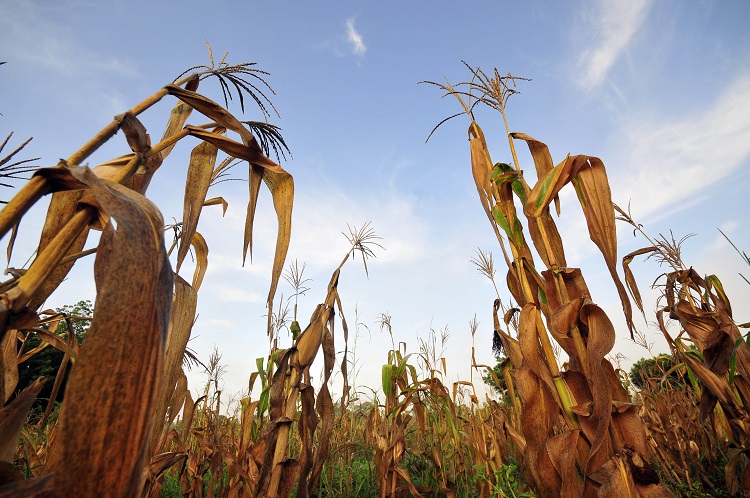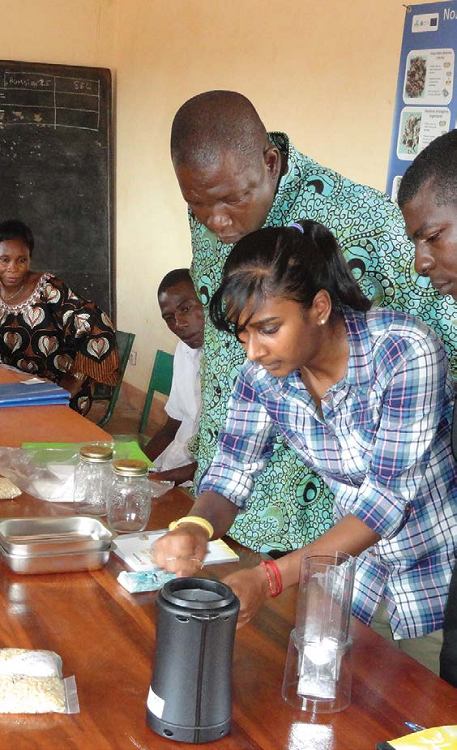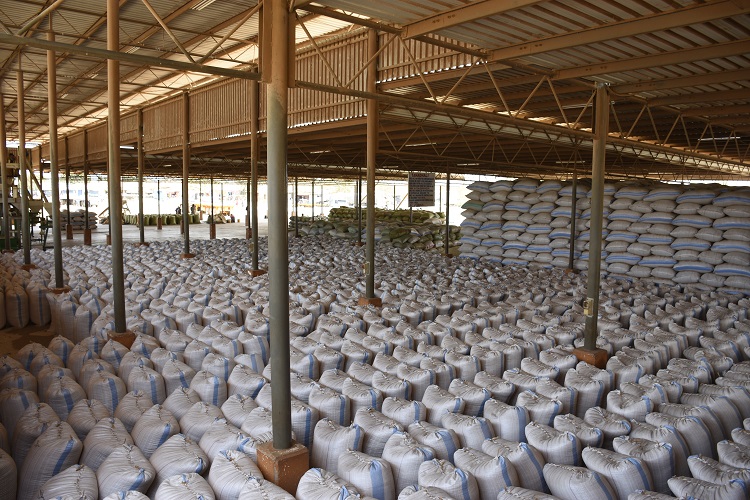
The Challenge
Farming is a risky business. In Africa, more than 500 million smallholder farmers – with an average farm size of 1–2 hectares – are at risk of high levels of losses prior to or after harvest due to variability in the weather and incidence of plant and livestock pests and diseases.
Many farmers have difficulties buying quality inputs such as seed or fertiliser, accessing markets, or obtaining rewarding and predictable prices. Unlike farmers in advanced economies, most African smallholders do not have effective tools to manage these risks and usually rely on sub-optimal strategies which reduce their productivity and income, and also increase the risk that their households will experience food and nutrition insecurity.

Our Approach
Since 2000, NRI has been undertaking action research – carried out in partnership with farmers and farmers’ organisations (FOs) – with the aim of identifying and/or developing viable risk management tools which are accessible to smallholders, including: warehouse receipt systems, market information systems (MIS), and agricultural insurance bundled with production credit for smallholders.
A warehouse receipt system (WRS) can be accessed by both smallholders and larger-scale actors; upon storage of goods in designated facilities, the depositor is issued with a warehouse receipt (WR) by warehouse operators. The WR confirms that commodities of stated quantity and quality have been deposited at a particular location, and that the depositor or any other party to whom the WR is transferred has title to the commodity. This makes it legally possible to use the receipt as security for a loan. Farmers can use such loans to meet household consumption needs, giving them the benefit of delaying the sale of their crop beyond the harvest season when prices are usually very low. Using the WR to transfer title to commodities makes it possible for buyers who are not physically present in farmers’ communities to compete to buy their farm produce. Farmers can obtain better prices partly because the number of intermediaries is reduced and they also sell better quality produce.
NRI led an international consortium to implement the Farm Risk Management for Africa (FARMAF) project which aimed to identify success factors in empowering FOs to advocate for policy reforms needed for accessible risk management tools to work. Led by Dr Gideon Onumah and funded by the European Union, FARMAF involved developing and/or scaling up access to the risk management tools mentioned above.
Our Impact
Over 320,000 smallholders benefited from FARMAF in the three focal countries – Burkina Faso, Tanzania and Zambia. The evidence generated is also feeding into policy processes at very high levels, including the Africa Union, the Alliance for a Green Revolution in Africa, the Organisation of Islamic Cooperation, and the Platform for Agricultural Risk Management hosted by the International Fund for Agricultural Development (IFAD).
In Burkina Faso, an improved WRS was established, with a built-in quality assurance system, a mobile phone-based MIS, and weather-indexed crop insurance. The direct beneficiaries were 33,200 smallholders who were able to sell directly to large-scale private traders and institutional buyers (e.g. the World Food Programme). The sale excluded intermediaries and so farmers obtained prices about 45–60% higher than prevailing prices at the farmgate. They were also able to access crop production loans of about $150 per farmer. Their household income rose by over 45% and they reported having more food, especially during the ‘hunger season’. Their diet was also more diverse – the food diversity score for the participating households rose by 50%.

In Tanzania, a commercial WRS, which NRI had been involved in promoting since 2004, was strengthened through: tightening up the regulatory system to protect depositors and lenders and to guarantee delivery to buyers; strengthening the capacity of the national FO and its grassroots membership for sustained policy advocacy; training for staff, farmers, farmers’ groups, cooperatives, regulators and farmers’ representatives; and improving an existing MIS through equipment supply. By the end of 2016, over 82,000 smallholders had benefited directly from accessing the MIS, taking advantage of information on grain price differences to earn additional income of about 55%. Another 135,000 smallholders collectively marketed coffee, cashew and sesame through the WRS, earning incremental net income of about 30–35%.
In Zambia, the project collaborated with the national FO to improve and scale up a farming loan scheme involving bundling of insurance with credit. From 2011–2015, the number of participating smallholders increased from 2,220 to 18,690. The smallholders had more resources to invest in inputs as the average size of credit they received increased by over 50%. This led to growth in farm productivity, with the average yield for maize (the most important staple) rising by about 75% from 2t to 3.5t per hectare. They were also able to expand their cultivated land by over 30%. The gross farm income of participating smallholders was almost doubled as a result of these developments. The project also successfully advocated for government to reinstate the Zambia Agricultural Commodity Exchange and the WRS it runs.
Our Partners
- Wageningen University and Research (WUR), the Netherlands
- The Centre de Coopération Internationale en Recherche Agronomique pour le Développement (CIRAD), France
- The Conféderation Paysanne du Faso (CPF), Burkina Faso
- MVIWATA, Tanzania
- The Zambia National Farmers Union (ZNFU), Zambia
Key Publications
- Coulter J. and G. Onumah (2002) “The role of warehouse receipt systems in enhanced commodity marketing and rural livelihoods in Africa”, Food Policy, Vol. 27, No. 4. 319-337 DOI: 10.1016/S0306-9192(02)00018-0
- Onumah G. (2012) “Warehouse receipts and securitisation in agricultural finance to promote lending to smallholder farmers in Africa: potential benefits and legal/regulatory issues”, Uniform Law Review, Vol. 17, 2012-1/2 pp.351-367 DOI:10.1093/ulr/17.1-2.351
- Ton G., K. Grip, F. Lancon. G. Onumah and F. Proctor (2014) “Empowering Smallholder Farmers in Markets: Strengthening the advocacy capacities of national farmer organisations through collaborative research” Food Security, Vol. 6 pp. 261–273. DOI 10.1007/s12571-014-0339-3
- Platform for Agricultural Risk Management (2016) Ethiopia Agricultural Risk Assessment Study http://www.p4arm.org/document/agricultural-risk-assessment-study-in-ethiopia/).
- Chapoto A., M. Demeke, G.E. Onumah and H. Ainembabazi (2016) “Getting more for farmers from postharvest to markets”. Chapter 6 in AGRA (2016) Africa Agriculture Status Report 2016 (available at: http://reliefweb.int/sites/reliefweb.int/files/resources/assr.pdf)
Contact: Dr Gideon Onumah | +44 (0)1634 88 3263 |
